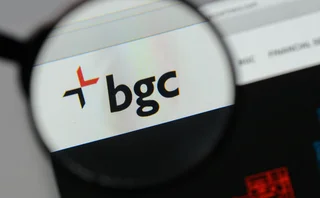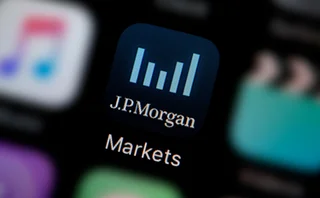

A bitcoin ETF could threaten the world’s biggest crypto fund
Regulated funds may suck away demand for Grayscale’s off-exchange investment trusts
Need to know
- The SEC under new chair Gary Gensler is about to approve or reject bitcoin ETFs from both VanEck and WisdomTree.
- One company – Grayscale Investments – accounts for 79% of global assets under management in cryptocurrency funds.
- Grayscale’s bitcoin trust has historically traded at a premium to fair value, meaning that many investors overpaid for the underlying assets. It now trades at a discount as sellers overwhelm buyers on the secondary market.
- The index provider and sole authorised participant for Grayscale’s bitcoin trust are owned by its parent company. The trust lacks an independent trustee.
- Grayscale plans to launch its own ETFs if the SEC gives the green light. Where that leaves investors in its off-exchange trusts is unclear.
Gary Gensler finds cryptocurrencies so interesting that he once taught a 24-class course on uses of the blockchain. That may bode well for the many enthusiasts of bitcoin when the MIT Sloan professor begins his new job as chair of the US Securities and Exchange Commission.
The SEC chair’s remit is vast, but one item currently sitting in his in tray is particularly eye-catching. US asset managers VanEck and WisdomTree are seeking the regulator’s permission to list exchange-traded funds (ETFs) tracking the price of bitcoin. If approved, the funds would allow both institutional and retail investors to buy and sell the biggest cryptocurrency without the bother of looking after the digital keys or trading on unregulated cryptocurrency exchanges.
The SEC has cited investor protection concerns for rejecting previous applications. This time may be different. “The regulators’ view of these products has changed,” says Deborah Fuhr, the founder of ETFGI, a consultancy.
With no cryptocurrency ETF to invest in, Americans have turned to the only crypto asset manager able to take their money: Grayscale Investments. Since launching in 2013, the firm has amassed $43.3 billion of assets under management, representing 79% of the total assets held in crypto funds. But Grayscale’s investment trusts come with caveats.
The Grayscale Bitcoin Trust, or GBTC as it is also known, is available to accredited investors through private placements. Grayscale periodically issues shares at net asset value (NAV), but cannot redeem them. New investors are locked in for six months after which they can offload the shares via OTC Markets, an off-exchange venue where GBTC often trades far from its NAV.
Grayscale also has an unusual corporate structure. Its parent company, Digital Currency Group, owns GBTC’s index provider and its sole authorised participant (AP). DCG is also an investor in Coinbase, Grayscale’s custodian, but it does not control the business.
The bitcoin ETFs proposed by VanEck and WisdomTree have a more familiar feel to them. The products will be listed on Cboe’s BZX Exchange (formerly owned by Bats Global Markets). They will have independent trustees to verify their holdings and market-makers to ensure the share price stays close to the value of the underlying assets. State Street, the world’s second-biggest custodian, will provide record-keeping services for the VanEck fund.
The SEC’s decision could have serious ramifications for Grayscale’s products. Demand for GBTC on the secondary market could dry up if investors can get the same exposure through regulated products. Michael Sonnenshein, Grayscale’s chief executive, says the company would seek to compete directly with VanEck and WisdomTree by offering its own cryptocurrency ETFs. He doesn’t say what would happen to the $43.3 billion the company already manages.
Groundbreaking, in 2013
When GBTC launched in 2013, it was the world’s first bitcoin fund. No regulator in the world was prepared at that time to approve a collective investment for cryptocurrencies. It would take another two years before Sweden’s markets regulator allowed Nasdaq to list an exchange-traded note (ETN) tracking the price of bitcoin from XBT Provider, a firm that is now owned by crypto asset manager CoinShares.
During bitcoin’s previous rally in 2017, Grayscale attempted to get its fund regulated. “We spent the better part of 2017 in SEC registration trying to convert GBTC into an ETF,” Sonnenshein says. “Ultimately, we realised they were not yet ready to authorise an ETF.”
Bitcoin has crashed in the past and investors were able to sell. Investors tend to have a more medium- to long-term time horizon
Michael Sonnenshein, Grayscale
By trading on OTC Markets as an investment trust rather than on a stock exchange as an ETF, Grayscale avoided the need to get explicit SEC approval for GBTC. Grayscale opted for the next best thing in January 2020 when it “voluntarily became an SEC-reporting company”, Sonnenshein says, meaning that it has to report its financial statements within the SEC’s deadlines or risk being fined. “This is something that we are not required to do, but we decided to do because we wanted to be held to a higher standard of disclosure. We felt it’s what investors wanted and deserved. We are an exceedingly buttoned-up operation.”
But in several ways, Grayscale’s trusts fall outside the norms of regulated funds.
Sonnenshein calls GBTC “an open-ended structure”, yet the asset manager can and will close it to new subscriptions – GBTC has been closed since at least March 4. Investors who gain access to GBTC via new subscriptions cannot sell for six months.
Grayscale denies that this is a problem. “Bitcoin has crashed in the past and investors were able to sell,” Sonnenshein says. “Investors tend to have a more medium- to long-term time horizon.”
Grayscale issues new shares at NAV but will not redeem them. Investors wanting to sell have to find a buyer on OTC Markets. This gives GBTC a Hotel California quality. “Once you check in, you can’t check out,” says Henson Orser, the president of Komainu, a cryptocurrency custodian that counts Nomura as its biggest investor.
If there are more buyers than sellers, or vice versa, the shares can trade at a premium or a discount on the secondary market. GBTC has spent most of the eight years since its launch trading at a premium to NAV. From May 2015 to the beginning of March this year, the shares traded at an average premium to NAV of 36.5%, weekly data from Bloomberg shows. That means an investor paying $136.50 received $100 of the underlying.
At the end of February, the premium disappeared. GBTC traded at a discount to NAV of more than 10%, meaning that an investor with $100 of the underlying would get paid less than $90 by selling their shares on the secondary market.
DCG, the owner of Grayscale Investments, announced on March 10 that it is ready to buy as much as $250 million of shares in GBTC on the secondary market to close the discount. Listed companies often buy back their own stock to support the price, but the same tactic may not work for GBTC if investors continue to assume that they will soon be able to invest in one or more regulated bitcoin ETFs. The potential share repurchase is equivalent to just 0.69% of the assets under management in GBTC. A spokesman for Grayscale declined to comment on the potential share buyback.
All roads lead to DCG
Other aspects of Grayscale’s business may also give regulators pause. For instance, GBTC lacks an independent administrator, trustee or record-keeping agent.
“The administrative function overseeing the fund is something that Grayscale has been able to oversee,” says Sonnenshein, adding that most external fund administrators “have not been able to keep up with the complexity of digital assets”.
Trustees are responsible for ensuring that funds hold the assets they say they have invested in. “There’s 100% verification that Grayscale has the assets that it claims to have,” Sonnenshein says. “Our independent auditing firm ensures that Grayscale has those assets.” GBTC’s financial statements are audited annually by Friedman LLP.
Both VanEck and WisdomTree, which filed its own application to issue a bitcoin ETF on March 11, have picked Delaware Trust Company as their trustee.
The relationships between Grayscale and related persons also warrant further scrutiny, though regulators may take a look and then conclude there is no problem. DCG also owns Genesis, the trading firm that is Grayscale’s sole AP. Another of DCG’s businesses is CoinDesk, a crypto news outfit that owns TradeBlock – the provider of the index that Grayscale uses to track the price of bitcoin.
APs are market-makers that ensure that the price of an ETF stays close to the value of the underlying assets it holds. If a product is trading at a premium, the AP purchases the underlying asset at market prices and delivers them to the ETF issuer. The issuer creates new units in the ETF, giving the market-maker a profit and returning the ETF to its net asset value at the same time. If a product is trading at a discount, the trade takes place in reverse: the AP takes the underlying assets from the issuer at a discount and sells them at market prices, pocketing the difference.
GBTC doesn’t work like that. Genesis only delivers cryptocurrencies to Grayscale when it issues new shares. “Genesis is the sole AP for Grayscale because it is the only regulated broker-dealer to trade cryptocurrencies,” says Sonnenshein. Flow Traders and Jane Street, two high-frequency traders that act as APs for cryptocurrency funds listed in Europe, are both fully regulated market-makers.
DCG invests in Coinbase, Grayscale’s custodian, but it does not control the business.
Coinbase also supplies custody services to 21Shares, which issued its first cryptocurrency exchange-traded product (ETP) in Switzerland in 2019. “There’s a very simple reason why we opt to use Coinbase,” says Laurent Kssis, managing director at the issuer. “They give us access for trading in a much more seamless way.” Coinbase makes it easier for the issuer to create and redeem its shares without compromising the security of the cryptocurrency when it changes hands.
European model
The VanEck Bitcoin Trust does not yet exist, but potential investors can assume that it will be similar to the ETP the firm listed in Germany at the end of last year. European Union regulations stop fund managers from issuing ETFs that track a single security, so they have to structure bitcoin investments as ETPs or ETNs.
“It’s still early days for institutional investors to invest in this area,” says ETFGI’s Fuhr. “What constrains the ability for it to grow a lot in Europe is this uncertainty from investors: ‘what wrapper should I hold it in?’”
ETPs are regulated by the stock exchanges they list on, but national competent authorities must give their blessing first. Germany’s Bafin and Switzerland’s Finma have made their countries centres for digital asset investing, while the US SEC and the UK’s Financial Conduct Authority have not.
VanEck picked Deutsche Börse to list its ETP. “With access to the European Union, we can access more customers,” says Dominik Poiger, the product manager at VanEck who designed the European ETP. Any institution in the 27-nation bloc can access an ETP listed on Deutsche Börse. The fund has amassed $174 million of assets since its launch last November.
WisdomTree, which manages $69 billion of assets, adapted its ETP for tracking the price of gold to the task of replicating the price of bitcoin. Gold shares many of the same problems as cryptocurrencies: it generates no income, investors find it difficult to buy the physical metal and even if they did so, it would make an attractive target to thieves.
“We leveraged the exact same structure that we’ve been using for precious metals over the last 15 years to bring this product to market,” says Jason Guthrie, head of capital markets and digital assets, Europe at WisdomTree.
WisdomTree opted to list on Six Swiss Exchange at the end of 2019 after seeing 21Shares list multiple products in Switzerland earlier that year. Its ETP has more than $350 million of assets under management.
“Switzerland is probably the friendliest jurisdiction for digital asset products in Europe,” says Townsend Lansing, head of product at CoinShares. The specialist cryptocurrency firm, which has $4.9 billion of crypto assets under management, set up a new fund in Switzerland at the beginning of this year because it wanted a more modern fund structure.
It’s still early days for institutional investors to invest in this area. What constrains the ability for it to grow a lot in Europe is this uncertainty from investors: ‘what wrapper should I hold it in?’
Deborah Fuhr, ETFGI
Besides the choice of jurisdiction, the bitcoin ETPs listed in Europe share many similarities. Most have chosen one or both of Flow Traders and Jane Street as their APs. The two trading houses account for about 40% of overall ETP trading in Europe. Flow Traders in the Netherlands and Jane Street, a US market-maker that operates out of London and Amsterdam, are joint APs for the ETPs issued by VanEck, CoinShares and ETC Group – a firm that also picked Deutsche Börse. Flow Traders is also the sole AP for ETPs issued by WisdomTree and 21Shares.
Flow Traders and Jane Street are both fully regulated market-makers. None of the European ETPs use Genesis as their AP.
The European ETPs also shield investors from the risk of losing bitcoin by storing the digital keys that provide access to the cryptocurrency at a regulated custodian. The US does not regulate any cryptocurrency custodians at a federal level, but specialists such as Kingdom Trust can operate because they have approval at a state level, in Kingdom’s case from the South Dakota Division of Banking. South Dakota also regulates one of the other custodians specialising in cryptocurrencies, BitGo.
“We looked at many custody solutions before deciding on BitGo,” says Bradley Duke, the co-founder and CEO of ETC Group, an issuer that has amassed $1.2 billion in a bitcoin ETP listed in Germany last June. “BitGo has been around since 2011 and played a pivotal role in developing a lot of the security technology that is widely in use today.”
Some bigger names are now entering the field. Along with State Street, other major banks including Northern Trust and Nomura have set up separate businesses to provide crypto custody to the host of bitcoin ETFs that would inevitably follow if the SEC approves the applications from VanEck and WisdomTree.
Waiting for Gary
What is the future for Grayscale? If the SEC rejects the VanEck fund, American investors may pump more money into GBTC on the secondary market. The discount could disappear because US residents will have no alternative – the European ETPs are too difficult to access for most Americans.
If the SEC approves the VanEck ETF, or the WisdomTree product, Americans will be able to invest in an open-ended fund that trades near NAV during the day and automatically returns to NAV at the close. They will be able to withdraw their money and add to their investments whenever they want.
Where would that leave Grayscale and its investors? “It is our hope to become an issuer of digital currency-based ETFs when regulators become inclined to regulate those types of products,” Sonnenshein says. It is unclear what that would mean for investors in Grayscale's investment trusts. “It would be very difficult to say that the structures do not work or investors are not attracted to them.”
Only users who have a paid subscription or are part of a corporate subscription are able to print or copy content.
To access these options, along with all other subscription benefits, please contact customer services - www.fx-markets.com/static/contact-us, or view our subscription options here: https://subscriptions.fx-markets.com/subscribe
You are currently unable to print this content. Please contact customer services - www.fx-markets.com/static/contact-us to find out more.
You are currently unable to copy this content. Please contact info@fx-markets.com to find out more.
Copyright Infopro Digital Limited. All rights reserved.
You may share this content using our article tools. Printing this content is for the sole use of the Authorised User (named subscriber), as outlined in our terms and conditions - https://www.infopro-insight.com/terms-conditions/insight-subscriptions/
If you would like to purchase additional rights please email info@fx-markets.com
Copyright Infopro Digital Limited. All rights reserved.
You may share this content using our article tools. Copying this content is for the sole use of the Authorised User (named subscriber), as outlined in our terms and conditions - https://www.infopro-insight.com/terms-conditions/insight-subscriptions/
If you would like to purchase additional rights please email info@fx-markets.com
More on Trading
Banks and market-makers back BGC’s FMX
Group including BofA, Citi and Goldman buy 26% stake in spot FX, UST and futures trading business
BestX founder Jerome joins Deutsche Bank
Oliver Jerome joins the German bank as head of European FX product
FX dealers face end-of-day trading stress from T+1 shift
Experts say switch to using overnight swaps could be “problematic” and lead to wider spreads
Natixis turns on the taps in flow trading
French bank boosts flow business, balancing structured solutions capabilities
Execution algos evolve to make buy-side liquidity providers
Latest range of FX spot algos could give new roles to banks and buy side
JP Morgan’s new way to trade FX overlays
Hybrid execution method allows clients to put dealers in competition via a single trading agreement
Morgan Stanley back on top for US insurer FX forwards
Counterparty Radar: Bank added $1.7bn with Mass Mutual in Q4 to overtake Citi as biggest dealer
Nomura names new global head of FX structuring
Rana Dasgupta will have dual responsibility for global FX structuring and Asia-ex Japan structuring







